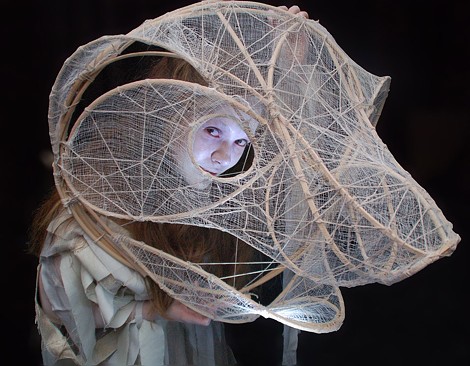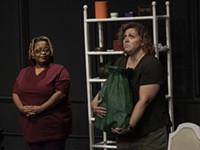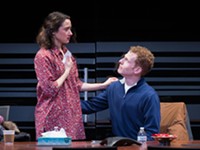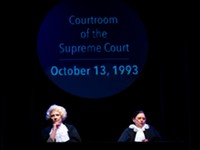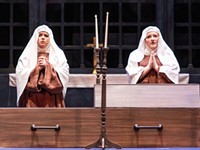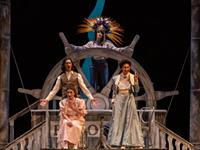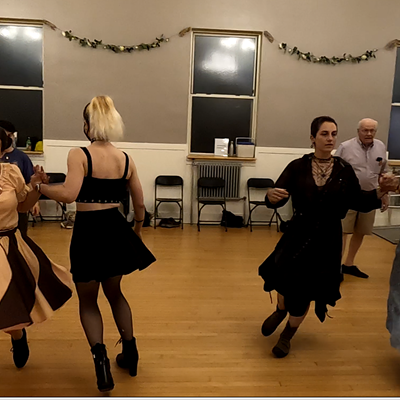Theater Review: "The Winter's Tale" by Rochester Community Players
A tale for all seasons
By David Raymond[
{
"name": "500x250 Ad",
"insertPoint": "5",
"component": "15667920",
"parentWrapperClass": "",
"requiredCountToDisplay": "1"
}
]
Part domestic tragedy, part raucous comedy, mostly improbable fairy tale, “The Winter’s Tale” is one of Shakespeare’s most intriguing and confounding works. Rochester Community Players’ production of the show, running until the end of this month, is a well-conceived take on a play seldom seen but definitely worth seeing.
As “The Winter’s Tale” begins, Leontes, the King of Sicilia, is enlisting his wife, Hermione, to persuade his visitor and longtime friend Polixenes, the friendly King of Bohemia, to stay longer. Hermione is a virtuous wife, but when Leontes observes her in conversation with Polixenes, he is suddenly overwhelmed with jealousy and accuses him of fathering the child Hermione is carrying. His insistence that Hermione is unfaithful has terrible consequences: by the intermission, the court is in an uproar, his wife has been accused of treason and sentenced to death, their young son is dead, and their newborn daughter is taken away by a courtier to be abandoned in Bohemia (bearing no resemblance to the real Bohemia). In true fairy-tale fashion, she is discovered and raised by a shepherd.
Fast forward 17 years, and the girl, named Perdita, is still among the Bohemians and being wooed by Florizel, the disguised Prince of Bohemia. Without going into too much detail, suffice it to say that Perdita finds her true parentage, Leontes is forgiven after many years of penance, and a miracle or two ensues to provide a happy, and to some, not terribly convincing, ending. “The Winter’s Tale” does require a thorough suspension of disbelief from the audience -- but as Shakespeare knew, that’s what theater is about.
“The Winter’s Tale” is a complex play: its plot deliberately defies logic, and while there is some thrilling dialogue and rhetoric in the court scenes, other passages are (to me at least) almost impenetrably dense and hard to follow. The changes in tone between the court and country sections of “A Winter’s Tale” (or if you like, the tragic and the comic sections) must be difficult for performers and directors to balance.
The challenges start in the very first scene, which starts with a few minutes of courtly chit-chat but then turns downright nasty as irrational jealousy grabs Leontes and won’t let go. As for the scenes in Bohemia, they are full of those Shakespearean rustic clowns whom -- I may as well just be honest -- I have never found all that funny. And Leontes’ redemption at the end of the play can seem sudden and unearned, although in this production it is quite moving.
Director Virginia Monte’s concept is wintry from the beginning: the play is performed on an all-white set, with elegant white costumes for the Sicilian court. The second part brings bright ragtag costumes for the Bohemians. It’s a simple concept but it looks great in the small-ishMuCCC playing space. There is also brief but telling use of puppetry and shadows, as well as some subtle lighting effects. Monte turns Shakespeare’s character “Time” into a chorus of fates watching over the action, and occasionally taking part in it, adding three more characters to a frequently full stage of people. I’m not sure that this conceit is necessary, but the director works the three actresses into the action quite well.
The large and able cast ranges from seasoned Rochester Shakespeareans to first-timers. Those complicated speeches don’t trip off everyone’s tongue with equal ease, but the increasingly strange story is clearly presented. Leontes must be one of the more difficult Shakespearean parts to bring off, and James Heath is convincing as a holy terror in the first part and as a much-chastened man at the end. Abby DeVuyst is a dignified Hermione, and her impassioned speech during her trial for treason is one of the highlights of the show. (As Paulina, a court lady defending Hermione, Midge Marshall gets to jump on an even more venomous outburst to Leontes.) Danielle Lattiere’sPerdita is definitely her mother’s daughter, displaying the regal bearing one character mentions in the play.
The smaller parts (and there are many parts in this play -- most of the actors play two roles) are well taken by a few of those seasoned local actors. Tom Borhrer as the shepherd who discovers Perdita, Brad Craddock at Polixenes, and Roger Gans as the Sicilian courtier Camillo invest their every line with clarity and meaning. Kate Sherman makes an entertaining 180-degree turn from a regal Sicilian courtier in Part I to a wild Bohemian wench in Part II. Mark Casey gives a pleasantly silly fake-European air to one of those rustic clowns, while accompanying himself on the concertina and mandolin; he also wrote the show’s pretty, sometimes moody incidental music.
